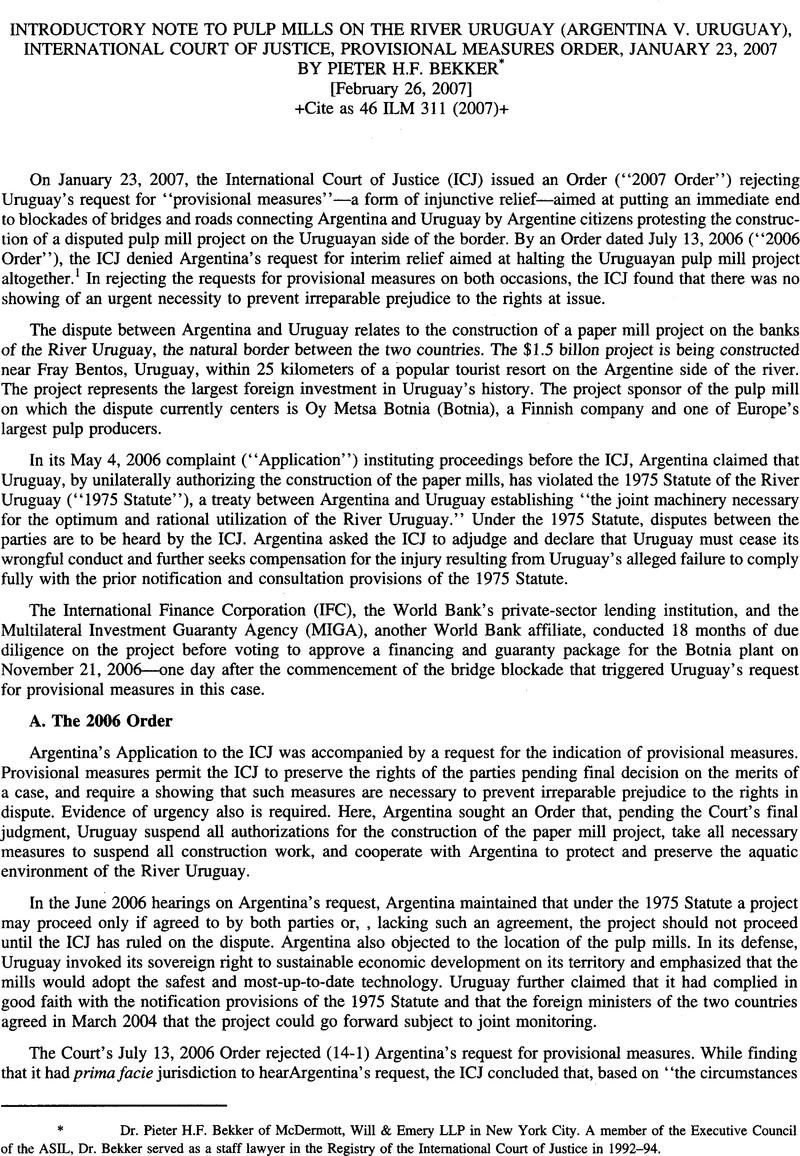No CrossRef data available.
Published online by Cambridge University Press: 27 February 2017

* This text was reproduced and reformatted from the text appearing at the International Court of Justice website (last visited March 16, 2007) < .http://www.icj-cij.org >
1 The text of the 2006 Order is reproduced in 45 ILM 1025 (2006). In each case, the judge ad hoc appointed especially for the case by each party was the sole judge voting against the Order denying the request of the party having appointed him. Under the ICJ Statute, States parties to an ICJ case that have no judge of their nationality sitting on the regular bench are entitled to appoint a judge ad hoc of their choosing. Both Argentina and Uruguay have exercised this right.
2 See 2006 Order, Paras. 74-75.
3 Id., Para. 78.
4 Id., Para. 82.
5 A three-member ad hoc arbitral tribunal convened, at Uruguay's request, under the auspices of the Treaty of Asunción establishing the Southern Common Market (better known as“Mercosur“) unanimously condemned Argentina in connection with earlier blockading actions in a decision dated September 6, 2006.See <http://www.sice.oas.org/dispute/merco-sur/Laudo060906_s.pdf> (Spanish text).
6 2007 Order, Para. 41.
7 Id., Para. 40.
8 Id., Para. 50.
9 Id., Para. 53. Strictly speaking, this call is non-binding as it does not appear in the operative paragraph of the Order. The Order itself does not impose any obligation on either party.
10 Id., Para. 40.
11 See Art. 79(1), ICJ Rules of Court. The Court's decision in the2006 and 2007 Orders on the parties’ requests for provisional measures ‘ ‘in no way prejudges the question of the jurisdiction of the Court to deal with the merits of the case or any questions relating to the admissibility of the Application, or relating to the merits themselves.” 2006 Order, Para. 85; 2007 Order,Para. 54. S4